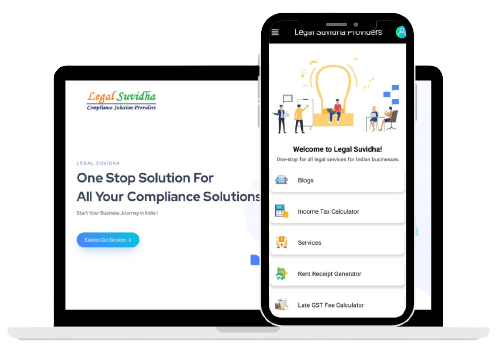ISO 27001: Information Security Management
ISO 27001: Information Security Management – A Simple Guide In today’s digital world, keeping sensitive information safe is more important...
One Person Company (OPC) is a type of company structure that allows a single individual to establish a company and become its sole shareholder and director. This concept was introduced in India in 2013 under the Companies Act, to encourage entrepreneurship and help small businesses thrive.
One Person Company registration is similar to that of a private limited company, but with some unique features. Unlike a sole proprietorship, an OPC has limited liability, which means that the personal assets of the owner will not be at risk if the company faces financial difficulties. Also, an OPC is treated as a separate legal entity, and therefore, can enter into contracts and own assets in its own name.

Happy Clients
Years Experience

Happy Clients
Years Experience
If you’re looking to start a business on your own, One Person Company Registration may be the perfect fit for you. According to the Companies Act of 2013, an OPC is a company that has only one shareholder as its member, meaning there can only be one member in the company. This is a major advantage over Private Limited Companies or Limited Liability Partnerships, which require a minimum of two members to form.
As a One Person Company, you’ll enjoy limited liability protection and continuity of business, just like any other company. You’ll also have the added benefit of being a separate legal entity from your personal finances, making it easier to manage your business finances. Plus, OPCs are relatively easy to incorporate, making it a straightforward process to get your business up and running.
Every One Person Company must nominate a nominee Director in the MOA or AOA who will become the owner of the OPC in case the promoter Director is disabled. It must file audited financial statements with the Ministry of Corporate Affairs at the end of each Financial Year. Therefore, it is important for the Entrepreneur to carefully consider the features of an OPC before incorporation. Legal Suvidha Providers can help incorporate a One Person Company online in India. So, before incorporating OPC following things must be kept in mind:
1. Only a Natural person who is a resident of India can form OPC but not AOP, Body corporate, Company, etc.
2. One can only be a member of one OPC or the nominee of one OPC only.
3. Conversion of One Person Company is necessary after paid-up share capital exceeds Rs. 50 L or the average annual turnover exceeds Rs. 2 Cr. in 3 immediately preceding financial year.
4. The rules of OPC do not permit Non-Banking Financial Institutions.
5. An OPC should not be confused with a Sole proprietorship i.e. promoter is not personally liable in the case of an OPC.
So, if you’re an aspiring entrepreneur in India looking to establish a business entity that combines the advantages of limited liability with the ease of solo operation, One Person Company Registration is the route to explore.
| Status of Private Company | As per S. 3 of the Companies Act, 2013, OPC is given the status of Private Companies. |
| Various Exemptions | An OPC enjoys various statutory exemptions from holding annual or extraordinary general meetings; signature on annual returns can be done by the Director himself, restriction on voting rights, demand for the poll, notice for the meeting, Signature on financial statements, etc. |
| Limited Liability | The owner of an OPC has limited liability, which means that their personal assets will not be at risk in case the company faces financial difficulties or gets into debt. |
| Single Owner | There is only one owner who can act both as a shareholder as well as a director. |
| Complete Control | This leads to fast decision-making and execution. Yet he/she can appoint as many as 15 directors in the OPC for administrative functions, without giving any share to them. |
| Legal Status & Social Recognition | One Person Company is a Private Limited Structure in the eyes of the law, which gives suppliers and customers a sense of confidence in business. |
| Separate Legal Entity | An OPC is treated as a separate legal entity from its owner, which means it can enter into contracts, own assets, and sue or be sued in its own name. |
| Easy Compliances | One Person Company registration is one of the easiest forms of corporate entities to manage. Very few ROC filing is to be filed with the Registrar of Companies (ROC). No need to conduct the Annual General Meeting (AGM), so lesser compliance cost. |
| Perpetual Succession | A company has ‘perpetual succession’, that is continued or uninterrupted existence until it is legally dissolved. A company, being a separate legal person, is unaffected by the death or other departure of any member but continues to be in existence irrespective of the changes in membership. |
| Easy Transferability | Shares of a company limited by shares are transferable by a shareholder to any other person. Filing and signing a share transfer form and handing over the buyer of the shares along with a share certificate can easily transfer shares. |
| Own property | A company being a juristic person, can acquire, own, enjoy and alienate, property in its name. No shareholder can make any claim upon the property of the company so long as the company is a going concern. |
Step 1: Obtaining DSC and DIN: Before you can begin the process of One Person Company registration, you need to obtain a Digital Signature Certificate (DSC) and a Director Identification Number (DIN) for the proposed Director. For this, you will only need to provide a few scanned documents and details; our representatives will fill out the form and submit it online. DIN and DSC can be obtained for the proposed Directors within 1 to 2 days.
Step 2: Name Approval: A minimum of one and a maximum of six proposed names must be submitted to the MCA. Subject to availability, naming guidelines and MCA processing time, Name Approval can be obtained in 2 to 3 working days.
Step 3: Drafting MOA and AOA Electronically: It takes 2 to 3 days to draft MOA and AOA Electronically in Spice MOA (INC-33) and Spice AOA (INC-34).
Step 4: Company Registration: After drafting the e-MOA and e-AOA, the incorporation Spice Form INC-32 is submitted along with a link form Spice MOA (INC-33) and Spice AOA (INC-34) to the MCA. MCA will usually approve the application for incorporation in 5 to 7 days, subject to their processing time. Please note that forms 49A and 49B have to be mandatorily applied with SPICe. If the same is not filed within 2 days of submitting SPICe (INC-32), the application for incorporation will be marked as ‘Invalid’.
1. Self Attested PAN Card copy
2. Self Attested copy of any one of the Identity Proof(Voter’s ID/Passport/Driver’s License)
3. Self Attested copy of Address Proof in the name of the director (Any utility bill i.e., mobile bill/water bill/ electricity bill, or bank statement which should not be older than two months)
4. Passport-sized photograph
1. Rent Agreement (Notarised: For rented property)
2. Sale Deed/Property Deed in English (in case of owned property)
3. No-objection Certificate from the property owner
4. Latest Electricity Bill / Mobile or Telephone Bill / Latest Bank Statement/Gas Bill
An OPC is a good alternative to running a sole proprietorship, largely because it gives limited liability to the business owner. This means that your liability is limited to the amount you’ve invested in the business; business debts cannot be recovered from personal possessions. Also, a sole proprietorship ceases to exist on the death of its promoter. In the case of an OPC, the nominee director takes over and the entity continues to exist. Single entrepreneurs who do not have another partner to start a private limited company may also consider it.
Only Indian residents can register an OPC, and that, too, only one at a time, as per the specifications of the Ministry of Corporate Affairs.
All such businesses must maintain books of accounts, comply with statutory audit requirements and submit income tax returns and annual filings with the RoC.
There is no difference in capital requirement between an OPC and a private limited company. It needs an authorized capital of Rs. 1 lakh to begin with, but none of this needs to be paid-up. This means that you don’t need to invest any money into the business.
No general advantages; though some industry-specific advantages are available. Tax is to be paid a flat rate of 30% on profits, Dividend Distribution Tax applies, as does Minimum Alternate Tax.
The MCA is skeptical about a single person in charge of a large corporation. Therefore, it requires all OPCs to be converted into private limited or public limited companies on crossing a certain revenue number. Currently, in case of an average turnover of Rs. 2 crores or more for the three consecutive years or a paid-up capital of over Rs. 50 lakh, the OPC must mandatorily be converted into an OPC.
An OPC has certain limitations. The person starting the business is its only director and shareholder. There can be a maximum of 15 directors in OPC. There is also a nominee director, but this person has no power whatsoever for raising equity funds or offer employee stock options. The nominee exists only to take over in case of the death or incapacitation of the director. The nominee is chosen by the director and can be anyone, such as your spouse, parents or siblings. The nominee will need to provide identity proof during registration.
Yes, One Person Company will be formed as similar to a “Private Limited Company”. It can be formed a company limited by share capital or limited by guarantee or unlimited company. The words “One Person Company” will have to be mentioned in brackets below the name of such a company, wherever its name is printed, engraved or affixed.
OPC is one of the easiest forms of corporate entities to manage. Very few ROC filing is to be filed with the Registrar of Companies (ROC). No need to conduct the Annual General Meeting (AGM), so lesser compliance cost than a private limited company.
Only a person, who is an Indian citizen and resident in India, shall be eligible to incorporate a One Person Company. For becoming a director in a company, no professional or educational qualification is required. Any individual can become a shareholder in a one person company.
Only a natural person who is an Indian citizen and a resident in India is eligible to be a nominee member. A nominee must also be over 18 years of age.
Voluntary conversion When a One Person Company gets incorporated, it cannot convert itself to a Private or Public company for a period of not less than two years from the date of incorporation. Means if you want to get converted voluntarily you have to wait for two years to over. Compulsory Conversion When a One Person Company has a paid-up capital more or equal to Rs. 50 lakhs or, the Annual turnover for the relevant financial year exceeds Rs. 2 crores, then in such conditions, the company has to compulsorily convert itself into Private Limited Company or Public Limited Company.
Once a Company is incorporated, it will be active and in-existence as long as the annual compliances are met with regularly. In case, annual compliances are not complied with, the Company will become a Dormant Company and may be struck off from the register after some time. A struck-off Company can be revived for a period of up to 20 years.
No, an NRI or Foreign National cannot be a shareholder for an OPC.
Yes, a salaried person can become the director in an OPC, there is no legal bondage in this, but you have to go through with your employment agreement if it contains any restrictions on doing so.
Change in membership to be informed in Form INC-4 for providing new member’s details. • Inform RoC in Form INC-5 about the requirement of conversion into the private or public company if the threshold limits exceed within 60 days.
Form INC-6 shall be filed by an OPC for conversion into the private or public company within 30 days in case of voluntary conversion & within 6 months in case of mandatory conversion.
Form INC-4 shall be filed in case of withdrawal of consent by the nominee or in the case of intimation of change in nominee by the member.
#answer
#answer
#answer
#answer
With a commitment to exceeding expectations and a passion for delivering results, choosing us means choosing a partner dedicated to your success.

We provide free of cost consultation and legal advice to our clients.

We are a team of more than 15+ professionals with 11 years of experience.


All our services are online no need you to travel from your place.

There are no hidden & extra charges* other than the quote/invoice we provide.

We aim that all our customers are fully satisfied with our services.

We value your time and we promise all our services are delivered on time.

We provide free of cost consultation and legal advice to our clients.
In this Journey of the past 14+ years, we had gained the trust of many startups, businesses, and professionals in India and stand with a 4.9/5 rating in google reviews.We register business online and save time & paperwork.
Trustindex verifies that the original source of the review is Google. Mayank & the Legal Suvidha team are fantastic. They really try to understand the business like insiders and don't give you templatized solutions. The staff are extremely supportive and go out of their way to help you. I would recommend Mayank to anybody new to the startup ecosystem!Trustindex verifies that the original source of the review is Google. Great experience with smooth process during the startup india registration Excellent coordination and teamwork with effective implementation in very limited timeTrustindex verifies that the original source of the review is Google. Sound expertise, good coordination, efficient and timely execution.Trustindex verifies that the original source of the review is Google. Good service and very helpfulTrustindex verifies that the original source of the review is Google. We had a great experience working with the LegalSuvidha team - we have used them for both our Pvt Ltd and LLP formation and their team has been very proactive, knowledgeable, prompt and helpful. They helped with all DSCs as well and couriered them to us. Very professional and thorough. We also got our Startup India , MSME registrations through them promptly. Overall highly recommended. Special callout to Nidhi, Saloni, Anjalin, Shreya and Priyanka for promptly helping us throughout the process.Trustindex verifies that the original source of the review is Google. I am writing to thank you for the quality of service provided by your company. We sincerely appreciate your efficient, gracious customer service, the level of detail and accountability you have demonstrated and the way you conduct business as a whole. A special Thanks to Ms Saloni for her great help throughout.Verified by TrustindexTrustindex verified badge is the Universal Symbol of Trust. Only the greatest companies can get the verified badge who has a review score above 4.5, based on customer reviews over the past 12 months. Read more


Explore more of our blogs to have better clarity and understanding
of the latest corporate & business updates.
ISO 27001: Information Security Management – A Simple Guide In today’s digital world, keeping sensitive information safe is more important...
Operating an online store comes with numerous benefits—but also regulatory obligations. Securing the right licenses and permits is essential to...
Directors shape a company’s governance and strategic direction. Among board members, Executive Directors and Non‑Executive Directors (NEDs) play distinct yet...
The Articles of Association (AOA) form the backbone of a company’s internal governance, setting out the rules, rights, and responsibilities...
Selecting the optimal legal form is a critical decision when launching your U.S. venture. Both LLCs and Corporations offer liability...
Expanding your U.S.-based business into India unlocks access to a vast consumer market, a skilled workforce, and cost advantages—but also...
Here are some answers to potential questions that may arise as you start your business.
Register your business, obtain necessary licenses, and fulfill tax obligations.
Consider factors like ownership, liability, and tax implications to choose from options like sole proprietorship, partnership, or company registration.
Choose a unique business name, obtain required IDs like Director Identification Number (DIN), and file incorporation documents with the Registrar of Companies (ROC).
Obtain GST registration, trade licenses, and any industry-specific permits required to operate legally.
Maintain accurate financial records, file tax returns on time, and adhere to the tax laws applicable to your business.
Yes, startups in India can benefit from various government schemes offering tax exemptions, funding support, and incubation facilities.
Secure patents, trademarks, or copyrights to safeguard your intellectual assets from infringement or unauthorized use.
Challenges include navigating bureaucratic hurdles, complying with complex regulations, and competing in a crowded marketplace.
Looking For More Information? Contact Us
Sign up to receive email updates on new product announcements, special promotions, sales & more.
Redefining the experience of legal services. Now all Professional Services in a Single Click !


Copyright © 2025 Legal Suvidha Providers LLP. All rights reserved.
